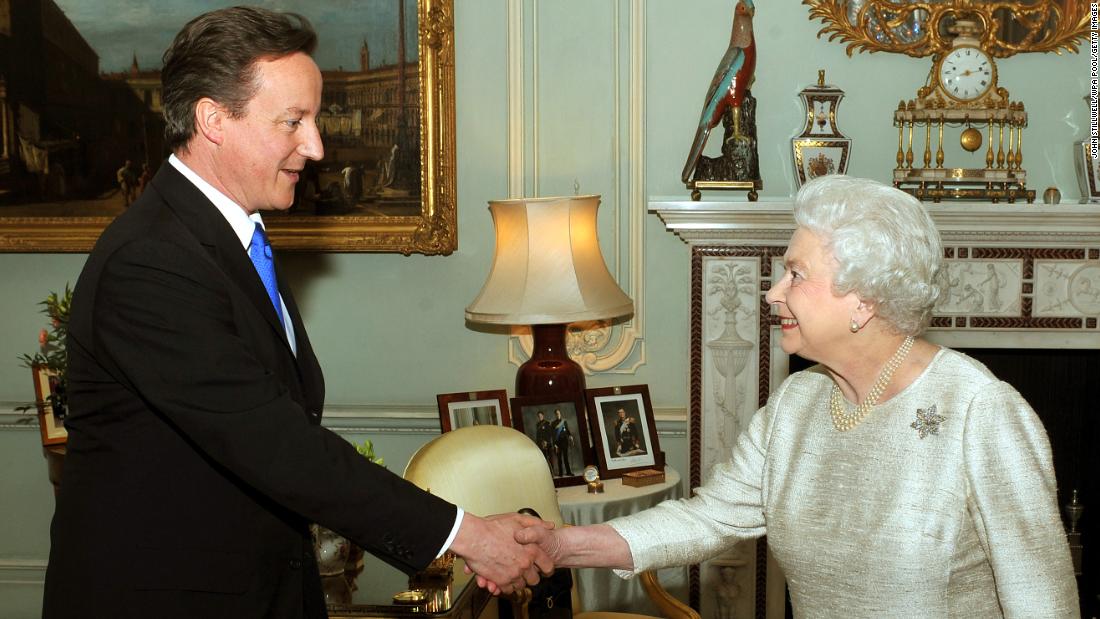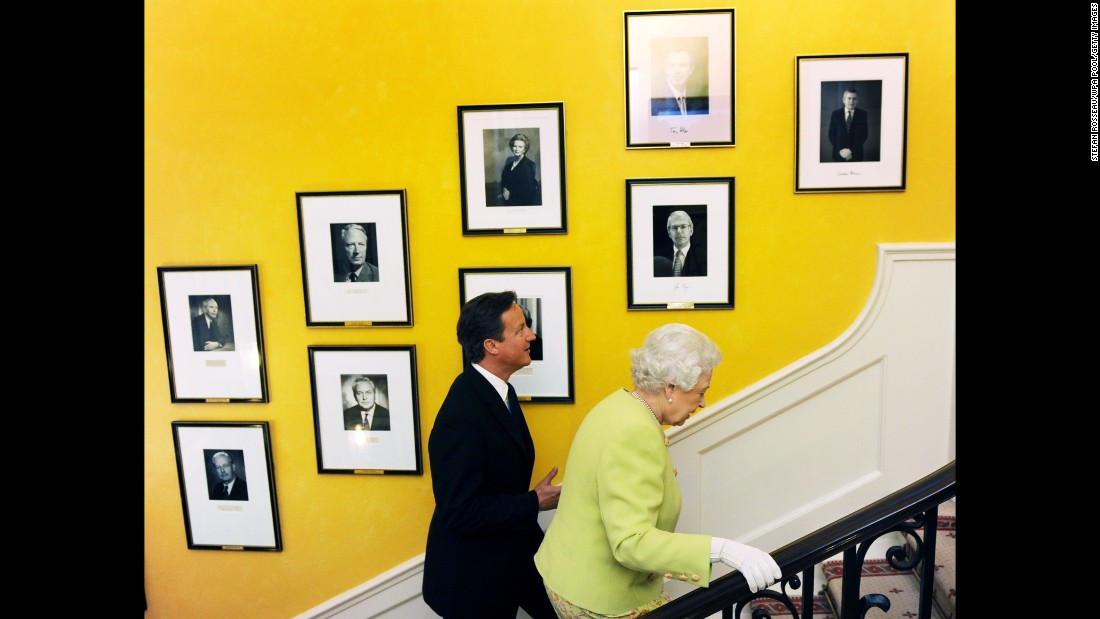David Cameron reveals he asked the Queen to 'raise an eyebrow' over Scottish referendum

Former British Prime Minister David Cameron pictured with Queen Elizabeth II in 2010.
London (CNN)Former UK Prime Minister David Cameron has revealed he asked if Queen Elizabeth could "raise an eyebrow" during the 2014 Scottish independence referendum, a request that was shortly followed by Her Majesty making a rare public comment on British politics.
In comments that the BBC later reported had displeased Buckingham Palace,Cameron told the public broadcaster that he sought help from the Queen's private secretary before the vote, amid "mounting panic" that Scotland would decide to sever its union with England and Wales.
The former PM had said he was "not asking for anything that would be in any way improper or unconstitutional," during the BBC documentary marking the publication of his memoir "For the Record."
"But just a raising of the eyebrow, even you know a quarter of an inch, we thought would make a difference," Cameron said.

Queen Elizabeth II walks up the staircase in 10 Downing Street with Cameron in 2011.
And that appears to be what the Queen did. Days before the vote, she said she hoped people would "think very carefully about the future," in what was seen as a warning to Scots considering voting to leave the union.
The comment, made to a well-wisher while leaving a church service near her Scottish holiday residence Balmoral, was splashed across British newspapers at the same time polls were predicting a nail-bitingly close result.
The Queen's comment marked a rare intervention on the political stage for the monarch, who is supposed to remain neutral.
And it certainly didn't hurt the No campaign -- which ultimately won the referendum to keep Scotland inside the Union.
Current Prime Minister Boris Johnson said he would not be drawn into his predecessor's discussions with the Queen, the UK's Press Association (PA) agency reported on Thursday.
"Not only do I not comment on conversations that I may have held with Her Majesty, but I don't comment on conversations she may have held with anybody else," Johnson told reporters, according to PA.
When quizzed about the incident on the BBC's Today program on Thursday, Cameron appeared sheepish as he said: "I don't want to say anything more about this.
"I'm sure some people would think it may possibly even be that I have already said perhaps a little bit too much."
The BBC reported later on Thursday that an unnamed source at Buckingham Palace said that "it serves no one's interests" for such communication between a prime minister and the monarch to be revealed publicly. "It makes it very hard for the relationship to thrive," the source added.
It wouldn't be the first time Cameron has revealed details about his relationship with Her Majesty.
A few weeks after the Scottish referendum he suggested the Queen "purred down the phone" when she was told about the result. Cameron later said he was "embarrassed" and "extremely sorry for" those remarks.
Cameron again told the Today program Thursday the comments were a "terrible mistake" and he had apologized to the Queen.
'Sorry' but no regrets on EU referendum
Cameron became prime minister in 2010 but stepped down six years later after calling for a referendum on the UK leaving the European Union -- which resulted in a shock defeat of his campaign to Remain.
He told the Today program he "hated" giving the impression he was running away but that as a Remain campaigner he had "lacked the credibility" a British PM needed to deliver Brexit.
Earlier this month Cameron told CNN he thinks about the EU referendum "every single day."
He added that he "thinks about the fact that we lost and the consequences and the things that could have been done differently, and I worry desperately about what is going to happen next."
Since the country voted to exit the bloc three years ago, its parliament has been thrown into turmoil, unable to agree on what -- if any -- withdrawal deal would look like.
Cameron's successor, Theresa May, was forced to resign earlier this year amid the deadlock. Now Prime Minister Boris Johnson has been told by EU leaders he has just 12 days to set out the country's Brexit plans.
With the clock ticking towards the October 31 deadline for exiting the bloc -- and Parliament currently suspended for five weeks -- the pressure is on to resolve the deadlock.


Post a Comment